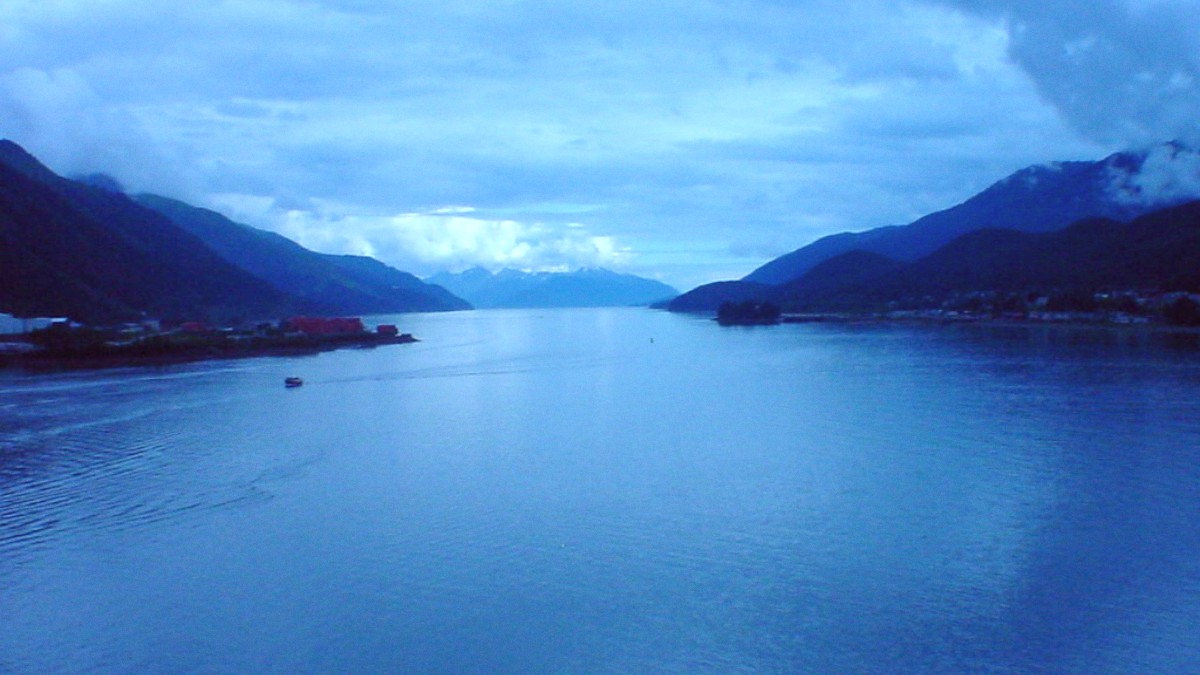
Alaska, USA
European exploration began in the late 18th century. George Vancouver, a British navigator, charted a significant portion of these complex waterways in the 1790s. His expeditions contributed to maps of the intricate network of channels and islands. Following this, the region became a main area for the maritime fur trade during the 18th and 19th centuries. Russian, British, and American traders arrived, seeking valuable sea otter and beaver pelts, which resulted in trading posts.
A significant shift occurred in 1867 with the Alaska Purchase, when the United States acquired Alaska from Russia. This transaction established American claim to the vast territory, including the Inside Passage. The late 19th century brought another event: the Klondike Gold Rush of 1897-1899. Towns like Skagway and Juneau quickly transformed into boomtowns, functioning as direct gateways for thousands of prospectors heading to the Yukon in search of gold. The legacy from this period remains visible in the historic architecture and stories of these towns.
During World War II, Alaska's strategic importance grew. This led to a greater military presence and more infrastructure development across the territory. In the mid-20th century, cruise tourism grew significantly. Today, this forms the dominant economic activity for many communities along the Inside Passage, drawing visitors from around the world eager to experience its wonders.
A journey through Alaska's Inside Passage presents a blend of natural spectacle, cultural richness, and engaging activities. Imagine days spent observing tidewater glaciers calving into the sea, with the roar of ice echoing across the water. Wildlife sightings include humpback whales breaching in the fjords to bald eagles soaring overhead. Brown bears fishing for salmon along the rivers or sea otters floating playfully in kelp beds are also part of the viewing experience.
The port towns themselves act as a window into Alaska's diverse heritage. In Ketchikan, historic Creek Street and impressive totem poles await exploration. Juneau, the state capital, presents access to the magnificent Mendenhall Glacier and the Mount Roberts Tramway for panoramic views. Skagway takes visitors back to the Gold Rush era with its preserved historic district and the iconic White Pass & Yukon Route Railway. Sitka shows its Russian past alongside deep Tlingit traditions, with historic churches and totem parks.
Historic Creek Street and Totem Poles.
Mendenhall Glacier and Mount Roberts Tramway.
Gold Rush era historic district and White Pass & Yukon Route Railway.
Russian heritage and Tlingit traditions.
Wilderness activities and Tlingit culture.
Activities span from gentle exploration to thrilling adventures. Take a guided kayak tour through calm inlets, hike through temperate rainforests, or embark on a fishing charter for fresh Alaskan salmon. Scenic flightseeing tours present breathtaking aerial perspectives of glaciers and mountains. Onboard a cruise ship, diverse dining, entertainment, and relaxation are available, with the Alaskan scenery as a backdrop.
Guided kayak tours, hiking through temperate rainforests, and fishing for Alaskan salmon are popular outdoor pursuits. Scenic flightseeing tours also offer unique views.
Cruise ship experiences include a range of dining options, entertainment programs, and relaxation spaces, all against the dynamic backdrop of the Inside Passage.
This region offers a chance to connect with raw nature and discover an unique American frontier.
The Inside Passage is a coastal route for oceangoing vessels, stretching from southeastern Alaska to northwestern Washington state. It features a labyrinth of islands, fjords, and channels, protected from Pacific Ocean storms.
It is a temperate rainforest ecosystem, home to abundant wildlife including whales, bears, bald eagles, and salmon. The region's beauty and unique ecosystem make it a premier destination for nature lovers and adventurers.
Thousands of islands, fjords, and channels create this protected sea route.
Whales, bears, bald eagles, and salmon populate this rich ecosystem.
Expect lush greenery and frequent precipitation due to the climate.
The main towns along the Inside Passage, often visited by cruise ships, include: